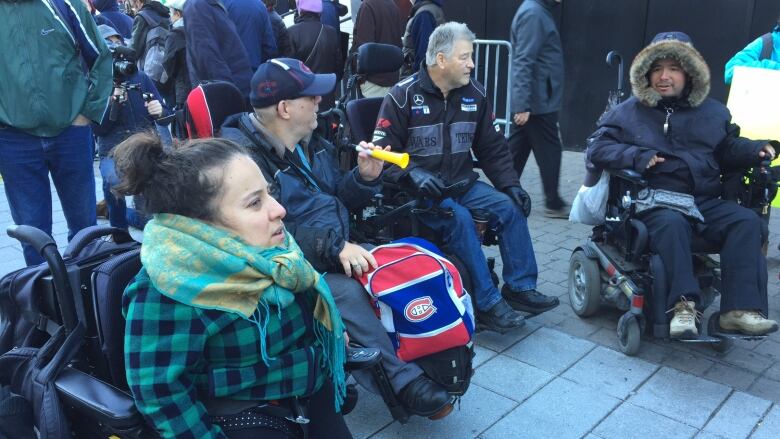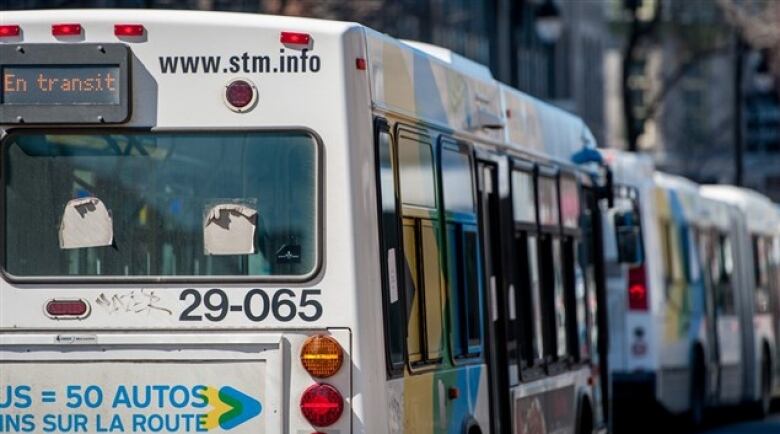Wheelchair users demand improved access on Metro's 50th anniversary
People with reduced mobility ask why Place-des-Arts can be made accessible for birthday party but not everyday

In celebration of 50 years of the Montreal Metro, the STM made Place-des-Arts station accessible Friday so those who use wheelchairs could partake in the plannedfestivities.
A group representing wheelchair users wants to know why,if the station can be accessible foraday, it can't be accessible all yearround.
About 10 people showed up at Place-des-Arts to protest against the inaccessibility of the Montreal transit system, honking horns while STM chairman Philippe Schnobb was speaking.
Today, 50 years to the day after the Metro opened,only 10 stations have elevators, and they are all on the Orange line.

On Tuesday, the STM and City of Montreal announced a plan to install elevators at 14 more Metro stations. The plan is to have elevators in 31 of the 68 stations by 2020 and to make the entire Metro network accessible by 2038..
The protesters said they were skeptical about the STM's promise.
One of those elevatorswill be at Jean-Drapeau station on the Yellow line, which would seem to make little sense, since there is no elevator at either Longueuilor Berri-UQAM,the other two Yellow line stations.
In an interview on CBC Montreal'sDaybreak,Schnobbdisputed the suggestionthat an elevator atJean-Drapeau station would serve little purpose,saying many visitors to the station are families with young children in strollers or elderly people with limited mobility.
"Elevators are for the general population as well. I'm not saying the elevator will go nowhere and won't be used," he said, adding that the STM is looking into temporary measures to help people with mobility issues get off the Yellow line platform atBerri-UQAM.
Mobility rights group Le Regroupement des activistes pour l'inclusion au Qubec is seeking authorization from the courts to launch a class action lawsuit against the STM over the Metroinaccessibility.
Blue collar workers were also present at the Metro stationFriday morning, protesting against Bill 110,the proposed law that wouldgive the provincial government final say on negotiations between unions and municipalities.

Should the Metro be privately run?
In a news release, the Montreal Economic Institute said that on days it isn't turning 50, the Metro is in the news due to delays, breakdowns and poor management.
The STM has a long history of inefficiency, the conservative think tank said, and Quebec taxpayers are footing the bill. Itssuggestion? Privatize some public transitservices, starting with buses.

It says since 1966, the public transit corporation's inflation-adjusted total costs per kilometre travelled have increased by 163 per cent, but the increase in costs has not ledto an increase in the reliability ofservice.
From 1983 to 2015, reported major delays in subway services went from 6.3 per million kilometres travelled to 12.2, the institute said
"Without competition, a monopoly has very little reason to improve its performance, especially if it is lavishly subsidized," says Germain Belzile, senior associate researcher at the institute.












_(720p).jpg)


 OFFICIAL HD MUSIC VIDEO.jpg)
.jpg)



























































































